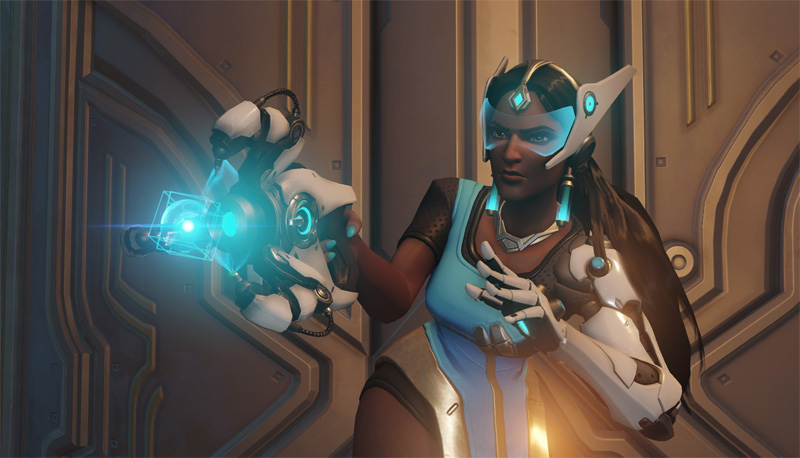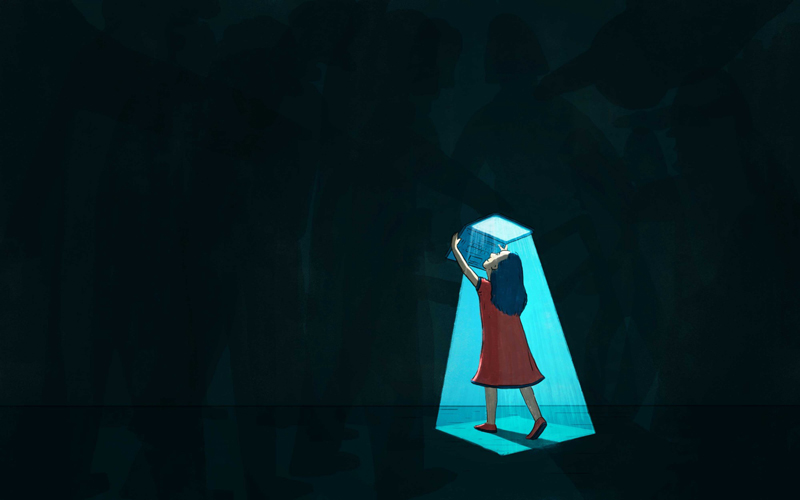Backchannel story: ‘The Sleeper Autistic Hero Transforming Video Games: Symmetra and Overwatch’, July 2017
A feature story for Backchannel. Excerpt below.
The Sleeper Autistic Hero Transforming Video Games
With Symmetra, Overwatch is quietly taking on the stigma of autism – and for the fans, effort means everything.
For Samuel Hookham and his younger brother, Overwatch was an obsession that took root last spring. They played the fast-paced shooter video game almost every day, passing the PlayStation 4 controller back and forth across the couch in their family’s California home.
Samuel was surprised to find himself selecting a female avatar. Overwatch offers two dozen characters of different genders and races, each with a richly drawn personality. But when Samuel played, he was almost always Symmetra, a slight but potent warrior. Her weapon of choice, a photon projector, locks onto enemies and swiftly depletes their energy. In the hands of a skilled player, she could be one of the most devious and deadly characters.
As he played, Samuel began to notice that Symmetra’s behavior was sometimes strange. She often misunderstood social cues. When her teammate, Torbjörn, cracked a joke—“Hehe, there’s something on your dress!”—Symmetra would respond literally: “No, there isn’t.” She craved structure and got overwhelmed with too much stimulation. In the middle of tense battles, she would turn her back on the action in order to, say, rebuild defensive sentry turrets. In a voice clip, she told her teammates that she believed “the true enemy of humanity is disorder.”
It was all a bit odd. But in Symmetra’s strangeness, Samuel saw himself. Near the end of 2016, he had been diagnosed with autism, and the label was helping him understand the ways his behavior was different. Like Symmetra, Samuel tended to take jokes literally and could get confused by social cues that others navigated with ease. Samuel began to wonder if his favorite Overwatch hero was autistic, too.
So when his English teacher asked the class to write letters to public figures they admired, he saw an opening. While his peers sent dispatches to the Nintendo headquarters in Japan, In-N-Out Burger, and Prince William, Samuel wrote to Jeff Kaplan, Overwatch’s director and a well-known personality thanks to regular YouTube updates. It was a short note—just a dozen sentences— focused on the question that had been bugging him.
“Dear Mr. Kaplan,” Samuel began, “My main question is about Symmetra. She’s my favorite character, hands down. I just wanted to clarify: Is Symmetra autistic? As an autistic person myself, I’d love to know.”
He addressed the letter to Blizzard Entertainment’s offices in Irvine, California, expecting not to hear back. A month later, a letter arrived.
“Dear Samuel,” wrote Kaplan, “I’m glad you asked about Symmetra. Symmetra is autistic. She is one of our most beloved heroes and we think she does a great job of representing just how awesome someone with autism can be.”
With 30 million players, Overwatch is among the world’s most popular video games. Kids like Samuel spend hours immersed in games, even though the avatars they control rarely reflect themselves. Characters with disabilities, characters of different races, characters with different sexual orientations, characters with autism—all are rare in video games. That means that when kids are building their conceptions of what heroes look like, they are almost never people with autism.
To read the full story, visit Backchannel at its new home on wired.com.

